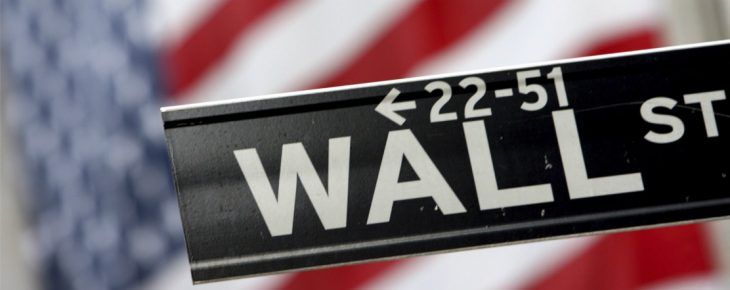Market watchers believe Wal-Mart share price has room to run higher
by January 10, 2018 3:30 pm 336 views

The past year has been a profitable one for Wal-Mart investors. Shares were trading around $68 in early January 2017, and accelerated in mid-November to the $100 per share threshold. This represents a one-year price increase of 47%.
On the expectations of a strong holiday season and recent tax reform bill which will lower corporate taxes for the retail giant shares rallied past the $100 mark to close at $101.61 earlier this week. Analysts said as Wal-Mart shares cleared the psychological resistance of $100, there is more room to run toward $110 and a longer-term upside target between $125 and $130 per share.
That rally has not begun as of yet. Shares retreated Wednesday (Jan. 10) to $99.67, down 72 cents. During the past 52 weeks the share price has ranged between $65.28 and $102.35.
The dip in stocks Wednesday was tied to news that China, the biggest holder of U.S. debt could reconsider its investments in U.S. government debt. If that is true, analysts said bond yields would rise, drawing money away from the equity markets.
Fourteen of 33 analysts who follow the retail giant now rank the shares a buy or strong buy. Part of the reasoning behind the bullish position is Wal-Mart’s strong balance sheet and positive sales metrics online and in stores, something few retailers can claim, according to Karen Short, a retail analyst with Barclays.
Short is bullish on Wal-Mart shares and applauds progress the retailer has made in its online business, store execution and efforts to tie online with in-store through grocery pickup and pickup discounts for general merchandise e-commerce orders.
“The world changed on June 16 when Amazon acquired Whole Foods. You were either on the right side or wrong side of this deal and Wal-Mart was clearly on the right side,” Short said recently.
Steven Chen, a contributor to Seeking Alpha and a former hedge-fund analyst on Wall Street, said Wal-Mart is also a stock that does well in economic downturns. For that reason, Chen said with market highs soaring into an eight-year bull run, he likes Wal-Mart as a hedge against recession or economic downturn.
“Like McDonald’s, Wal-Mart positions itself to customers who are living from paycheck to paycheck, so any economic slowdown would vastly expand its core audience. In addition, Wal-Mart’s product lineup emphasizes items rarely cut from consumer budgets, such as food and healthcare products,” Chen wrote.
He said during the 2008/2009 recession Wal-Mart achieved growth in revenue with some improvements in margins, and the stock continuously earned 20% return on equity while many other retailers suffered losses.
Chen, who owns a stake in Wal-Mart, said the retailer does face some challenges with respect to competition from Amazon. He also approves of the investments made to counteract that disadvantage and said the proof is already showing with 60% gains in online sales last year, and predicts gains of 40% this coming fiscal year.
Ben Bienvenue, retail analyst for Stephens Inc., is also bullish on Wal-Mart after sitting on the sideline for much of last year. He said the retail giant is posting impressive comp-sales growth, but more importantly the company is doing a better job leveraging expenses and that offers the potential for improved earnings over the next several years. He said the discipline demonstrated in capital spending is a positive sign of the efforts to leverage expenses. Bienvenue recently raised his target price on Wal-Mart shares from $98 to $106 and said higher earnings support the increased price forecast.
This week Wal-Mart also filed paperwork with the Securities and Exchange Commission to tender and call in 20 different debt offerings with due dates ranging from 2018 to 2044.
“As with the tender offers we completed in calendar 2017, the tender offers allow us to take advantage of the favorable interest rate environment and reduce our interest expense prospectively. We expect to record a charge for this discrete item upon completion of the tender offers, just as we did for the transactions completed in calendar 2017,” Brett Biggs, chief financial officer, noted in the release.
